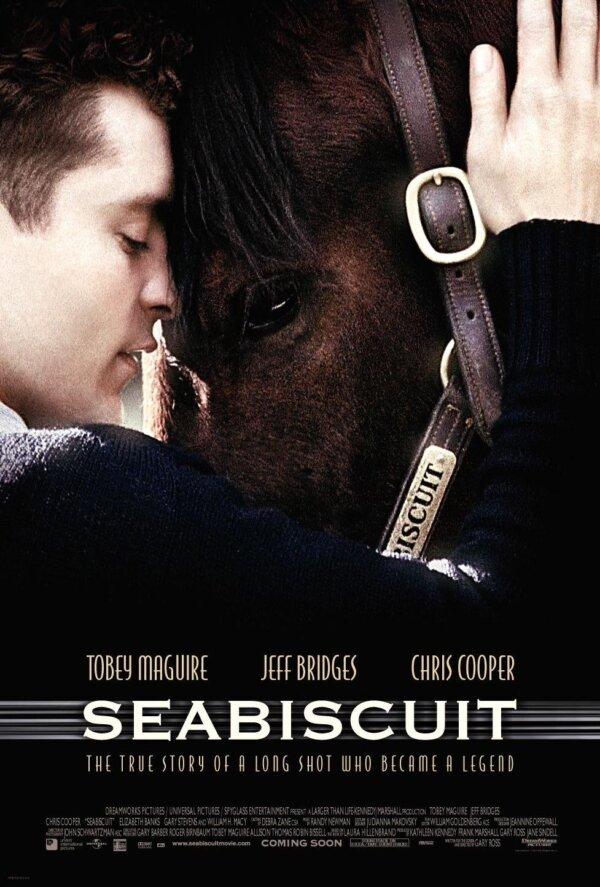Present in virtually every Western movie ever made, horses are generally relegated to the background and are rarely ever given center stage. As December 13 is officially National Horse Day, I couldn’t think of a better time to list my five favorite horse-themed movies: Those where humans are the secondary characters to their equine companions.
‘Seabiscuit’ (2003)

Theatrical poster for "Seabiscuit." Dreamworks Pictures






